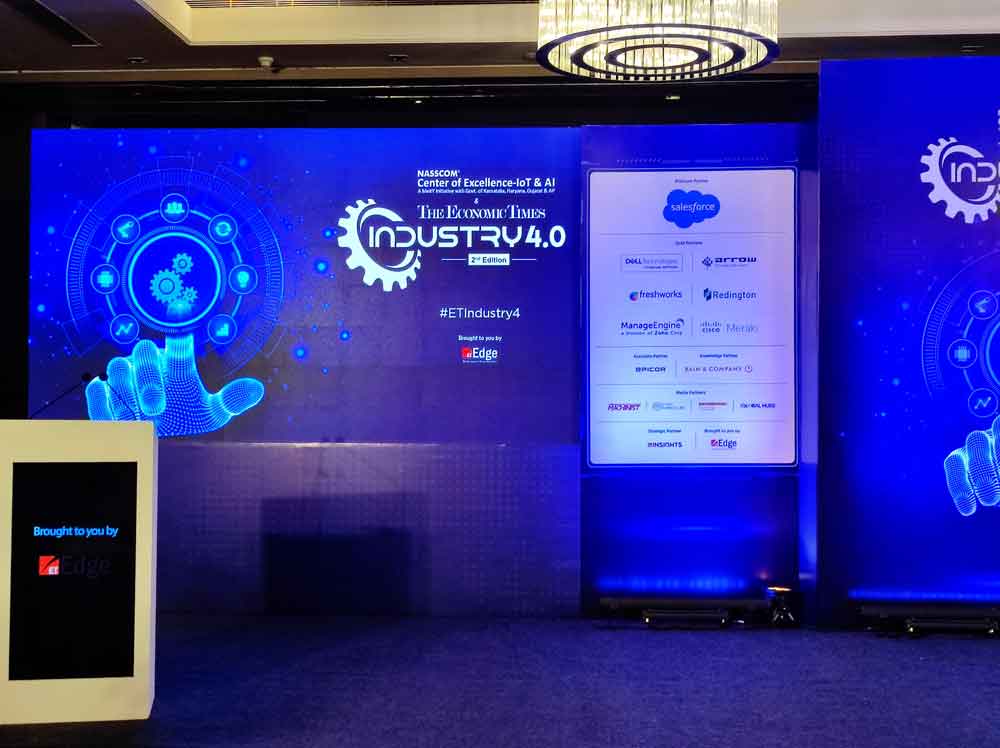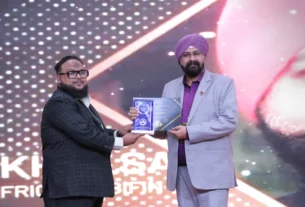The advent of digitization has encompassed practically every traditional sector and led to a technology-backed transformation that has ensued into a 360-degree overhaul. The adoption of intelligent technologies, the use of digital strategies, the shift from a linear economy to a circular economy, and the evolution of post-pandemic government industrial strategies are key drivers that will accelerate the creation of new industrial hubs, redefining the future of manufacturing and our understanding of global supply chains. Deliberating and exploring the way forward in the digital evolution of the Indian manufacturing landscape, ET Edge, an initiative of The Economic Times organized the 2nd Edition of The Economic Times Industry 4.0 Summit 2022: `Smart Factories for a Smart Future` on 1st December 2022 at Holiday Inn, New Delhi and on 14th December 2022 at Hilton, Chennai, respectively.
The summit witnessed an impressive gathering of industry leaders, decision-makers, and innovators coming together at one common platform to discuss and underlined the advantages and importance of using technology to make products for the global markets at competitive rates and to embrace 4.0 technology with the latest technological advancements.

Opening the dialogue, Vinit Goenka, Governing Council Member, Centre for Railway Information System (CRIS), Ministry of Railways, Govt. of India stressed on balancing the simplicity of innovations to solve major problems. He said, “The simplest technology innovation can solve some of the major problems in the world.”
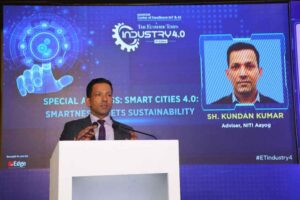
Accentuating the need for upskilling for right-scaling, Kundan Kumar, Adviser, NITI Aayog said “We need to be skillful in terms of size, pace, and standard in addition to our other skills”
Tamil Nadu Chief Minister MK Stalin believes that introducing advanced technologies and professional 4.0 standards in production will pave the way for further refining the industrial environment in the State. The government is keen on preparing MSMEs to acclimatize to the technological changes with the government providing advanced technologies to students, professionals, and young entrepreneurs. Speaking on Tamil Nadu’s readiness to embrace Industry 4.0, S. Krishnan, IAS, Additional Chief Secretary to Government, Industries, Investment Promotion, and Commerce Department, Government of Tamil Nadu said “Tamil Nadu tops the list of most industrialized states in India. Being a large manufacturing destination along with an equally large manufacturing force in the country and need to stay at the forefront of the manufacturing story. The complete history of manufacturing may change in multiple ways. With that objective in mind, the state is conscious and serious about staying at the forefront of the Industry 4.0 movement. For this, we must have the right-skilled workforce, the right companies, investing in the right kind of companies in years to come to stay at the forefront and for this, we need to work with the right industry partners. Tamil Nadu aims to be the hub for advanced manufacturing in the years to come.”
There is increased stakeholder pressure for businesses to focus on sustainability. As per industry reports, digital transformation serves as an accelerator of ESG initiatives. A Sumathi S., Chief Operating Officer, Sterlite Copper, Vedanta Limited said “We see ESG as an opportunity. From a journey starting with compliance and culminating in leadership, we have seen many efficiency improvement opportunities. It is well-integrated into our business, today. It is a good opportunity for us concerning a sustainable future.”
With the advent of Industry 4.0 and smart factories, digital manufacturing technologies have been experiencing exponential technological growth. Rajkumar Ravuri, Director and Manufacturing Industry Advisor, Salesforce-India said, “The three tenets of successful digital manufacturing include customer-centric disciplines, an execution framework, and a platform for growth and innovation.”
The customer experience (CX) is becoming a progressively deliberate part of any company’s brand as businesses become more and more customer-centric. Sreenivas Pamidimukkala, Chief Information Officer, Mahindra Logistics said “The barriers to technology are breaking. The industry is acclimatizing to growing customer demands as they embrace technology. It’s important to bring efficiency with help of digitization to serve your customers in a much-enhanced way.”
Discussing the way forward ahead in terms of Industry 4.0, the eminent panelist also made a point to deliberate in the direction of the next phase of digital transformation i.e. Industry 5.0: The Future of Manufacturing. The factory of 2035 will look vastly different than the factory of today.
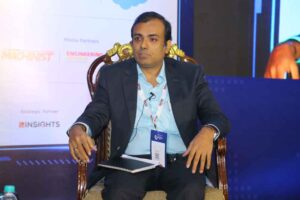
Ankur Goyal, Associate Director – Industrial Sector, IBM said “Industry 4.0 is about smart decisions based on available data. In my view, Industry 5.0 will be about giving back to society in terms of sustainability and we are nearing the next phase quite rapidly. There is a lot of convergence of technology that is happening. All these are getting affordable and implemented on the shop floor. It is all about achieving business objectives with help of evolving technology.”
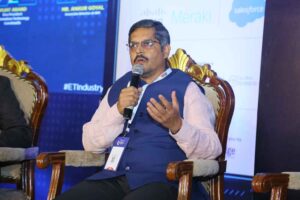
Manjunath Prasad, Vice President – ITS, TVS Mobility said “The objectives of the business are evolving. We are focusing on customer experience through digital transformation. With IoT, it’s important to manage data, and we have adopted cloud strategies to manage it well. The possibilities are endless with huge data availability.
In the next phase of the revolution, Industry 5.0 is projected to bring about human-machines/robotics co-working dynamics aimed at maximized automation and minimal human interaction. This relationship will be instrumental in transitioning existing smart factories to a lights-out factories.
The next edition of The Economic Times Industry 4.0 Summit 2023: `Smart Factories for a Smart Future` will be held on 8th February 2023 at Pune, Maharashtra.
*The information in this article does not necessarily reflect the views of The Global Hues. We make no representation or warranty of any kind, express or implied, regarding the accuracy, adequacy, validity, reliability, availability or completeness of any information in this article.*

